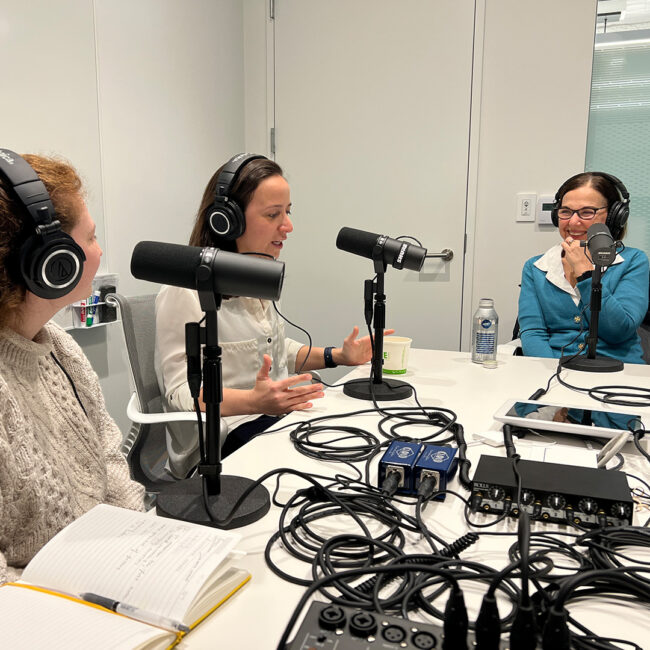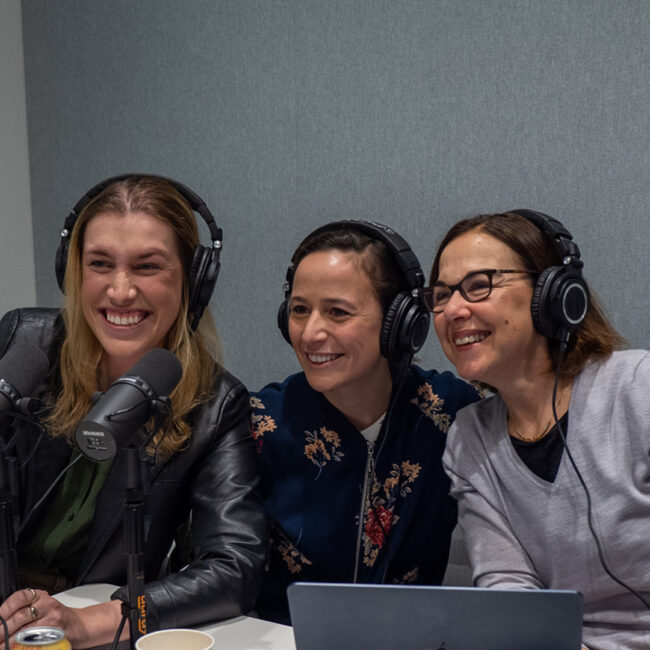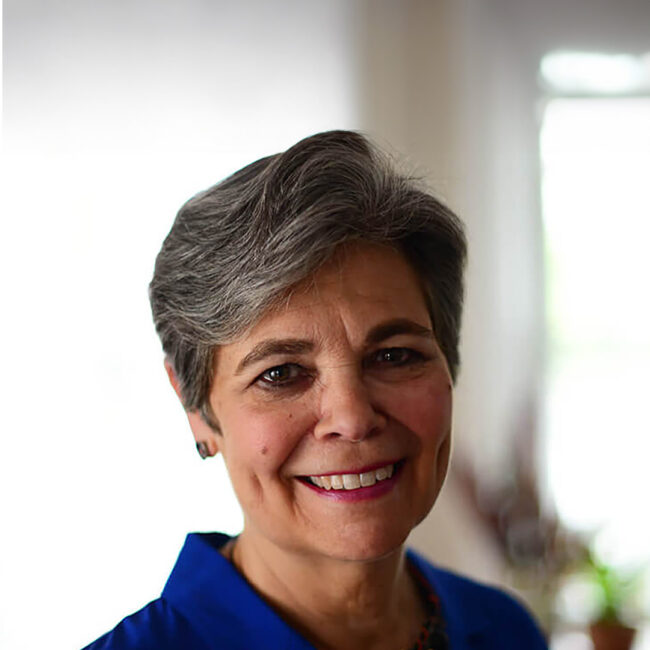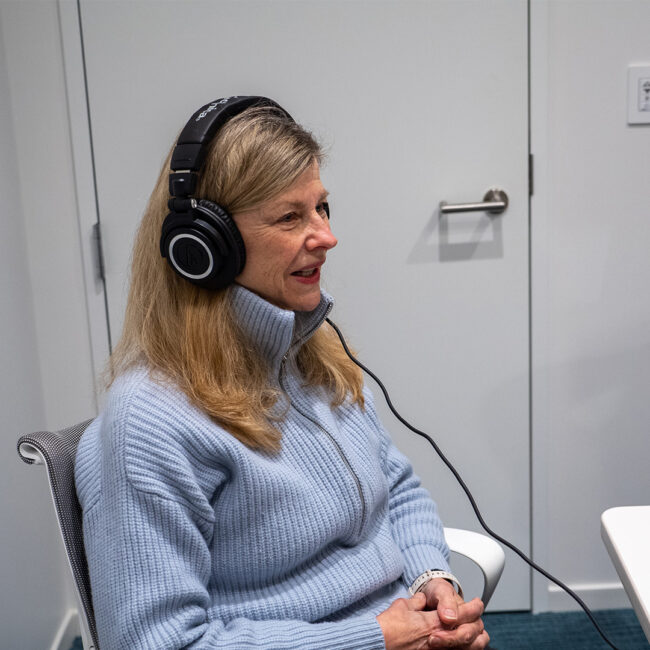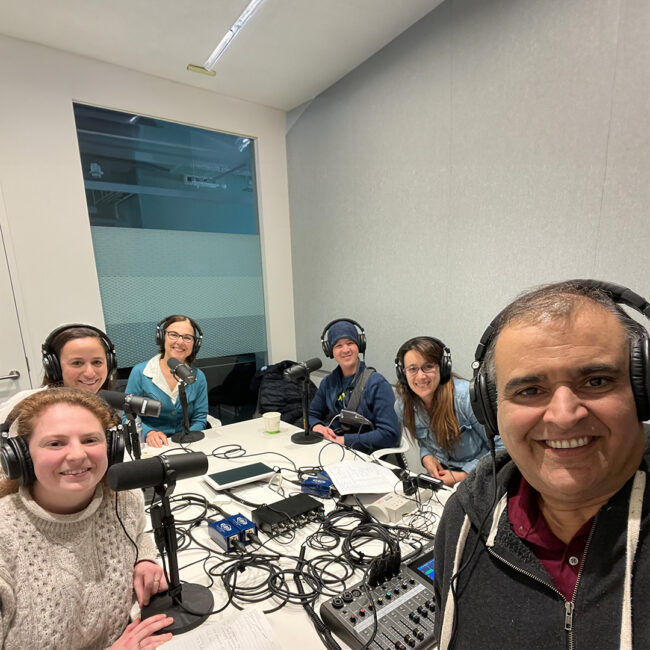
When Cancer Finds you Twice: A Conversation with Ben Barcklay
Episode Transcript:
Elle Billman:
Welcome to Health After Cancer, a podcast for cancer survivors, by cancer survivors. I'm Elle Billman, and I'm your host on today's episode. I'm joined in the studio by my co-host, Natasha Steele. Natasha and I have the privilege of interviewing my friend, Ben Barcklay. Ben is a two-time cancer survivor and a former St. Jude Hero. Ben and I actually met in college at a Relay For Life event. At this event, we both gave speeches about our experiences as cancer survivors. I remember listening to Ben share his story and wanting to hear more. I'm so excited that today we'll finally have the opportunity to hear more. With that being said, Ben, thank you so much for being on our show.
Ben Barcklay:
Happy to be here.
Elle Billman:
Can you start us off by telling us about your story?
Ben Barcklay:
Sure. So I've had cancer twice. The first time was back when I was seven years old. Started out, actually, I was abroad with my family in Hong Kong visiting family, and I had some headaches. We went home early, got it checked out by the pediatrician, and pretty soon after, I had a lot of balancing issues, and so they knew pretty quickly something was wrong. And not long after, I was in for, I think, a 10-hour surgery.
Elle Billman:
Oh, wow.
Ben Barcklay:
To remove a baseball size lump from the back of my head, and that was Medulloblastoma. About a month after that, after my dad had done tons and tons and tons of research, and actually went with my mom to visit St. Jude, I started treatment there, and that was about nine months on and off standard-of-care, and I continued to go back for checkups for about 10 years after that.
Elle Billman:
Got it. I've heard a lot about St. Jude, but can you remind me what they do?
Ben Barcklay:
St. Jude is a children's cancer research hospital based in Memphis, Tennessee. I think it started around the 1950s, I don't know the exact year, by Danny Thomas, and it's just grown into an institution doing cancer research all over the place.
Elle Billman:
I think something that's really unique about you, as a guest on this podcast, is that you and I relate in being childhood cancer survivors, but you and Natasha also relate in that you both had adolescent/young adult cancers as well. Can you tell us a little bit more about your second cancer diagnosis?
Ben Barcklay:
Mm-hmm. The second diagnosis is glioblastoma. That was found almost on accident. It was found through a routine MRI that was trying to look at my thyroid, and they saw something, they were like, "Oh, we should get that checked out." A couple of nights following that, I think I actually had a panic attack.
Elle Billman:
Oh.
Ben Barcklay:
Around the time, I thought maybe it was a seizure, but some doctors told me it was, some told me it wasn't. And then, about two weeks after that I was in for surgery. I think I stayed in the ICU for a day or two following that, and then went home and started standard of care after that. So standard of care for GBM was six weeks radiation, and then about six months of chemo.
Natasha Steele:
Do you feel like your first run with cancer prepared you for your second, or has it been a totally different experience?
Ben Barcklay:
Treatment wise, it was very different, and mentally, I was prepared for being nauseous 24/7, being tired all the time, but I was actually able to go back to work about a month through chemo, which I thought was very surprising, but I was also very happy about that I didn't have to go through all that again.
Natasha Steele:
So Elle, I want to ask you the same, but a slightly different question. Do you think having gone through cancer as a kid and processing so much of it as an adult, you feel remotely ready, were this to strike again?
Elle Billman:
That's a tough question. I can say that I definitely thought about the fact that, once you have cancer, you can certainly get it again. I don't think I would be ready to navigate another cancer. I have processed the cancer that I had quite a bit, but I think the cancer experience would just be so different for me, since I would be an adult.
Natasha Steele:
No, I love that you said that. I think in hearing you reflect on it, one of the really interesting things for me is that my therapist always tells me, fear of cancer recurrence is such a big part of survivorship, and she always tells me, for the people that she's worked with who have had recurrences, their experience is never what they feared or what they anticipated, it's always different. And what a weird thing with cancer that doing it once doesn't get you credit or experience to do it again, that it's always different. There's so many things in life, like having a second kid, or maybe switching jobs and doing a similar thing where you feel like, "All right, I've been around the block, I have some expertise. I can figure this out." And I do think cancer is one of those things where it's just, were it to happen twice for someone, their experiences are really different than they had imagined or they feared or they could have anticipated.
What did you find when you talked to all of the adult survivors of childhood cancer that you had interviewed as part of your research project? Was this something that they were worried about or thinking about? Was it part of your interviews?
Elle Billman:
Yeah, we did talk about fear of recurrence. I think that's such a common theme in survivorship, that really, in most interviews you have with a survivor, it will come up. We didn't discuss too much about how they felt about how they would fare going through a second cancer, so I can't say for certain what the people I interviewed shared. I definitely did hear from a lot of them that there's so much strength within the cancer survivorship community, and if anybody were to be diagnosed for a second time, they know that there are a lot of resources and support out there for them that can give them strength to get through their treatments again.
Talking about community and the strength that cancer survivors find within the survivorship community, Ben, can you talk about the community that you're a part of, specifically among other young adults who are diagnosed with glioblastoma?
Ben Barcklay:
I have a group chat that I've created with some other people who are under 30, also with glioblastoma. The majority of glioblastoma patients are much older, and our group chat name is, "We are warriors." So that goes along with, it's not an easy thing to do, you have to be strong to go through all of it.
Elle Billman:
When you said the phrase, "We have to be strong," it just reminded me, when I was a kid, I was really into dinosaurs, and I had this plastic T-rex, and when you pulled down on its jaw, it had a few little taglines, and one of them was, "We have to be strong." And I love that toy and I had it with me when I was going through treatment, and it was one of my little mascots. How was it when you, were you working when you were diagnosed the second time?
Ben Barcklay:
I was. I think I had been at my new job for about six months, maybe a little bit over that, when I was diagnosed. My work was awesome about letting me take whatever time off I needed, but I am also working in San Francisco at a robotic startup.
Elle Billman:
Very cool. So it's great that your employers were accommodating of you during that time. How was it disclosing to them that you had just received a cancer diagnosis and were going to need to take time off?
Ben Barcklay:
I don't quite remember how quickly I told anyone at work. It was definitely before surgery, but once I did, it was very quick for them to turn around and make the decision, "Okay. Take whatever time you need."
Elle Billman:
Nice.
Ben Barcklay:
Obviously, it was a very important thing.
Elle Billman:
Yeah.
Ben Barcklay:
But yeah, everyone was pretty understanding, I think. At some point beyond two weeks, two weeks, you can say, "Oh, I was on vacation," or something like that. At some point, I think we just got on Zoom at some point, because it was a bit into the pandemic now.
Elle Billman:
Right, okay.
Ben Barcklay:
So I was at one of the all-hands meetings, and I just said, "Oh, I have cancer and this is what's happening."
Natasha Steele:
When I disclosed my own diagnosis to my colleagues, I think there was an element of, "Wait a minute, you're a doctor and you're sick? That could happen to us?" I train with a lot of people who are in residency, in their 20s or early 30s, and this concept hasn't occurred to them yet.
Ben Barcklay:
Did you almost get the sense that some of your colleagues felt like they were invincible because they were doctors?
Natasha Steele:
I think you feel invincible when you're young. That's just a part of youth, which is so great.
Ben Barcklay:
Yeah, that too.
Elle Billman:
Speaking of disclosure conversations, I think disclosure conversations within families are so important, especially when they include information learned from genetic testing. Ben, in our previous conversations, you've shared with me that you have a genetic predisposition for cancer. Can you share what it was talking about your genetic test results with siblings, if you have any?
Ben Barcklay:
I only have one sibling, I have a sister. Our genetic tests were quite different, the results that we got were quite different. I knew I would have to start doing more year-round testing and monitoring. It wasn't anything I was expecting to affect my life so soon.
Natasha Steele:
So Elle, what's it like for adult survivors of childhood cancer when it comes to disclosures? So for example, did you tell your current employer about your cancer history and how long did that take, or when you applied to medical school, did you disclose it on your application? What has disclosures looked like for you and people in this community?
Elle Billman:
Now that I'm over 20 years out, I only disclose my cancer history if it's relevant. So when I'm volunteering in the cancer survivorship space, it's very relevant, so I share my story. With work, I didn't disclose it to my employer, I just didn't really feel like it was relevant. My boss and I, I've worked for him for two years, and just in getting to know him over time, it's come up because it's such a part of who I am and why I'm interested in going into medicine. So my employer does now know that I'm a cancer survivor, but it very naturally came up. In terms of my medical school application, I definitely disclosed it. As I said, being a cancer survivor and growing up around medicine has really shaped why I want to be a physician, and I had to include that in my application to really show why I want to be a physician and how excited I am to continue improving cancer survivorship as a physician in the future.
Natasha Steele:
It's awesome to hear that that's your perspective, because I feel like there's so much shame when it comes to cancer and a cancer diagnosis. Was that anything, did you experience this idea of shame when it came to your cancer history? Was that something you had to work through, or has that not been a live issue for you?
Elle Billman:
I definitely worked through shame. Disclosing my cancer survivorship status and my willingness to do so really has changed over time. When I was a kid, I liked disclosing it because I got special treatment. And then-
Natasha Steele:
Wait, what kind of special treatment do kids who have cancer get? Please tell me.
Elle Billman:
Oh my gosh, so much special treatment.
Natasha Steele:
Make-A-Wish stuff?
Elle Billman:
Yeah.
Natasha Steele:
... or front of the line or extra ice cream or what are we talking about?
Elle Billman:
Yeah, Make-A-Wish. People like telling you you're so brave.
Natasha Steele:
Yeah.
Elle Billman:
I think when I was a young athlete, I would sometimes get special treatment, especially if there are ever fundraisers around cancer.
Natasha Steele:
Yeah.
Elle Billman:
My story would be front and center, and if my story is being shared, I'm getting special treatment in comparison to another athlete who doesn't have cancer. As a teenager though, I didn't want to get that special treatment because I just felt like it was unfair. So I was more ashamed of it then and wouldn't disclose it because I didn't want any special treatment, and I also didn't want to have to manage people's emotions when I told them that I had cancer. Because a lot of times when people hear that you've had cancer, especially as a child, they're immediate reaction is like, "I'm so sorry."
Natasha Steele:
Yeah.
Elle Billman:
"I can't believe you had to go through that." And at a certain point, it's hard to always tell people, "No, no, no, it's fine. I'm past it." So as a teenager, I didn't really disclose it. As a young adult, as I got more and more passionate about survivorship, and was able to realize that I could use my cancer history as a way to improve medicine and improve cancer survivorship, I felt much more empowered, and being empowered takes the shame out of it for me. So I am much more willing to share it because I feel like I'm coming at it from a place of empowerment.
Natasha Steele:
Yeah. I want to go back to something you said, which I think is so true, which is, and it sounded like for you, this is something going on at a really critical time where you were a teenager, around this idea of having to manage other people's reactions when you tell them you're a cancer survivor, and as a teenager, really not wanting, probably, to draw attention to yourself, or have a lot of emotionally charged conversations with people. I think a lot of survivors will definitely relate to this feeling of they've gone through this experience, they've processed it, to some extent, and that processing might look different day to day, minute to minute, hour to hour, but that's their process.
And then they tell someone, whether it's at work or whether it's a colleague or a friend, and the reaction is, naturally, "Oh my gosh, I can't believe this happened. Are you okay? How's your health now?" And it takes you on this rollercoaster that you don't necessarily want to be on with someone. Maybe you're having a great day and you don't feel that bad about it, and then you have to go there emotionally with them. And I do think it creates the sensation of not wanting to talk about it all the time.
Or when you do talk about it, like you said, having to put a positive spin, "Oh, yeah. No, I had cancer as a kid. It was totally fine. I barely remember it, it was so great." When really, it is a serious thing, and you shouldn't have to be positive about it all the time, just so that people won't have this extreme reaction that you then have to make them feel better about every time you meet someone new, et cetera. So I want to call out that I think you said something really wise and applicable to a lot of people, regardless of when they had cancer, what type of cancer they had, where they're at in processing that experience.
I'm so glad we're having this conversation about disclosures, and one thing that it's just making me think about is, actually, in the cancer world, what a luxury it is to be able to disclose things. I think one of the really unique parts of a lot of people's experience is that things like treatment-induced hair loss can pigeonhole you into a physical identity where people are perceiving you as someone who stereotypically might look like they just had treatment for cancer, and then your ability to decide whom and when you disclose to really changes.
Elle Billman:
I think something that most cancer survivors can relate to is losing their hair during treatment. I'm curious to open up this conversation with you, Ben, and Natasha as well. What was it like losing hair for both of you, and afterwards, adjusting to physical appearances or physical changes you may have because of your cancer history?
Ben Barcklay:
One of the big words that comes to mind is, "Itchy."
Elle Billman:
Okay, tell me more.
Ben Barcklay:
So when you are losing your hair, it doesn't fall out all at once. So you can't just see it once, sweep it all away. It falls out piece by piece by piece by piece, and you just find it in your pillow every morning. But it is very itchy and it gets in everything.
Natasha Steele:
Yeah. I never knew if it was just the way my scalp felt during treatment that was bothering me, versus my actual hair falling out, 'cause my scalp was hypersensitive. But I thought that I was going to be the person whose hair didn't fall out, I was like, "Oh, that's probably not going to happen to me." And in a really interesting way, I was almost more disappointed about my hair than my diagnosis at first, because the diagnosis, in some ways, it was still a little bit theoretical. It was like, "Okay, I guess. And maybe I will get better, maybe I won't." But my hair was definitely starting to fall out, and it was making me look like a cancer patient, and I was not trying to look like that.
And so, I had this stepwise progression of events related to my hair where first I just cut it shorter and shorter, 'cause I thought maybe if it didn't have as much weight, it would stop falling out as much. And then, I shaved only the undercut, like Ellie Goulding, the punk British rock singer, I thought that would be amazing. And my mom shaved hers too, so the two of us had total punk rock ponytails, I thought that looked cool. But then it just continued to fall out, and instead of being respectful and falling out symmetrically, it fell out just from the top of my head first, which I thought was particularly insulting. And then, I said, "Okay, this situation's not working out with my undercut. I'm going to do a mohawk."
And so, I had my husband shave my head into a mohawk, and I thought it looked super cool, and in retrospect, it looked like that little creature in Lord of the Rings who has five hairs. And they were going in all different directions, and I was so attached to them and I'd gel them up together. Looking at these photographs, I'm like, "What was I thinking? This did not look cool." And then, of course, I feel that all sorts of comments from friends and family, like, "Oh gosh, I always wanted to shave my head, but I didn't have the courage because I thought it might look weird and take forever to grow back."
Ben Barcklay:
Cancer gave you that courage.
Natasha Steele:
Yeah, I was like, "Oh, thank you. Now I have this opportunity to experience what you've always wanted to do, but never had the courage for, it's awesome." And then, I had one person be like, "Well, you can experience life as a man because they have all these different experiences. You're not going to have all these gender stereotypes and people might mistake you for a man." And I was like, "Well, I wasn't really hoping for that because I actually identify as particularly female, and so thanks for that."
And so, once I had shaved my head, I actually think it looked the coolest of any of those iterations of attempts at salvaging the inevitable. And so, I really embraced the punk rock look. I will say, when it started to grow back, I had that experience in reverse, because then it was growing back in ways that were fluffy, like a baby duck, which I never also wanted to be, and everyone wanted to touch my head, which I didn't love. And then, I really looked like a man when I had... Yeah, anyway, that was my experience.
Ben Barcklay:
I've definitely had people want to touch my head, people. I think...
Natasha Steele:
Yeah, it's weird.
Ben Barcklay:
Once I was in middle school and had actually shaved it all off and it would grow back very slowly, it grew back pretty spiky. And so, if you touch it, it's like a little porcupine.
Natasha Steele:
Yeah.
Ben Barcklay:
But I wonder if holding onto your hair is... It's one of the main physical things that you see, so I wonder if it's almost holding onto, "Oh, I don't actually have cancer, this is not real." Because it took me a while through radiation to be okay with just shaving it all off.
Natasha Steele:
Yeah.
Elle Billman:
I don't remember any of the itchiness you've described, so I guess I lucked out there.
Ben Barcklay:
Blessing in disguise.
Elle Billman:
Yeah. I do remember not wanting to buzz my head, even though it was all falling out and didn't look very good, because in my mind, I was scared that I'd be mistaken as a boy. And I'm two and a half to five years old, so you really could easily look like a boy if you're a girl if you don't have hair. But I really should have just buzzed it right from the beginning because it did not look good. I've seen pictures and I questioned why my parents let me make that decision.
Natasha Steele:
Yeah. I will also say that, when I started to lose my own hair, someone suggested I make it into a wig, because you can make a wig out of your own hair, which is something I didn't know until I was getting chemotherapy. And if you don't have enough, or even if you have a lot of hair, actually, it's hard to make a proper wig from one person, you need actually two or three people. So people suggested I could use some of my husband's hair, or my best friend, I could have some of her hair. And it just led to these really bizarre, surreal conversations where I was like, "Okay, my husband. Could I wear a wig of my husband's hair?" In what other world could you even have that conversation? It was so weird. But he has great hair, and I think he would've made a great wig.
Elle Billman:
Ben, I'm so happy we've been able to reconnect after college, and it's been a few years, I think I've been out for three years, we've been out for four years. I'm going back into a lot of school and I'll be doing that for the next 10 years maybe. I'm curious to hear what your future plans are.
Ben Barcklay:
I don't think about it too much, to be honest, I take life as it comes to me. That might sound a little bit cliche, but when you have a diagnosis that is potentially life ending and you don't know when that could be, you want to do as much as you possibly can, as soon as you possibly can.
Elle Billman:
Yeah.
Ben Barcklay:
There are times when I've thought about, "Oh, maybe I'll have a family, at some point, or I'll try to buy a house," which is probably not possible in San Francisco.
Elle Billman:
Yeah.
Ben Barcklay:
But at the moment, I am focused on going to all the restaurants that I could possibly eat at. Enjoy all the food, go traveling, see everything that I want to see, before it's possibly too late.
Elle Billman:
What are your next travel plans?
Ben Barcklay:
I'll be going to Portugal in a couple of weeks.
Elle Billman:
Oh, awesome.
Ben Barcklay:
Yeah.
Elle Billman:
Very cool.
Natasha Steele:
We've covered so much today. Thank you for being here, Ben. This has been a conversation where I know I've learned a lot, and really loved having your perspective and all the things that you bring to the table. And so, thanks for making the time to be with us and looking forward to having your voice out there in the world so other people can get the same thing.
Ben Barcklay:
Thank you so much for having me. Hope a lot of people can get something out of this.
Elle Billman:
Yeah. And Ben, we're going to stay in touch. We're not going to wait for the next podcast to reconnect.
Ben Barcklay:
We can go on a film photography walk. How about that?
Elle Billman:
Yeah, I love it. NSF, excellent scenery.
Ben Barcklay:
Mm-hmm.
Elle Billman:
If you enjoyed this episode and you'd like to help support the podcast, please share it with others, post about it on social media, and leave a rating or review. Your hosts today were Elle Billman and Natasha Steele. This podcast is produced by the Stanford Medicine Ed Tech team. Our producer for this episode was Deila Bumgardner. Our creative director is William Bottini. Our sound engineer is Bindu Madhava. This episode was edited by Grace Sextro. Our guest today was Ben Barcklay. For more resources and information from our hosts and guests, please visit our podcast website at www.healthaftercancer.com. Thank you for listening.
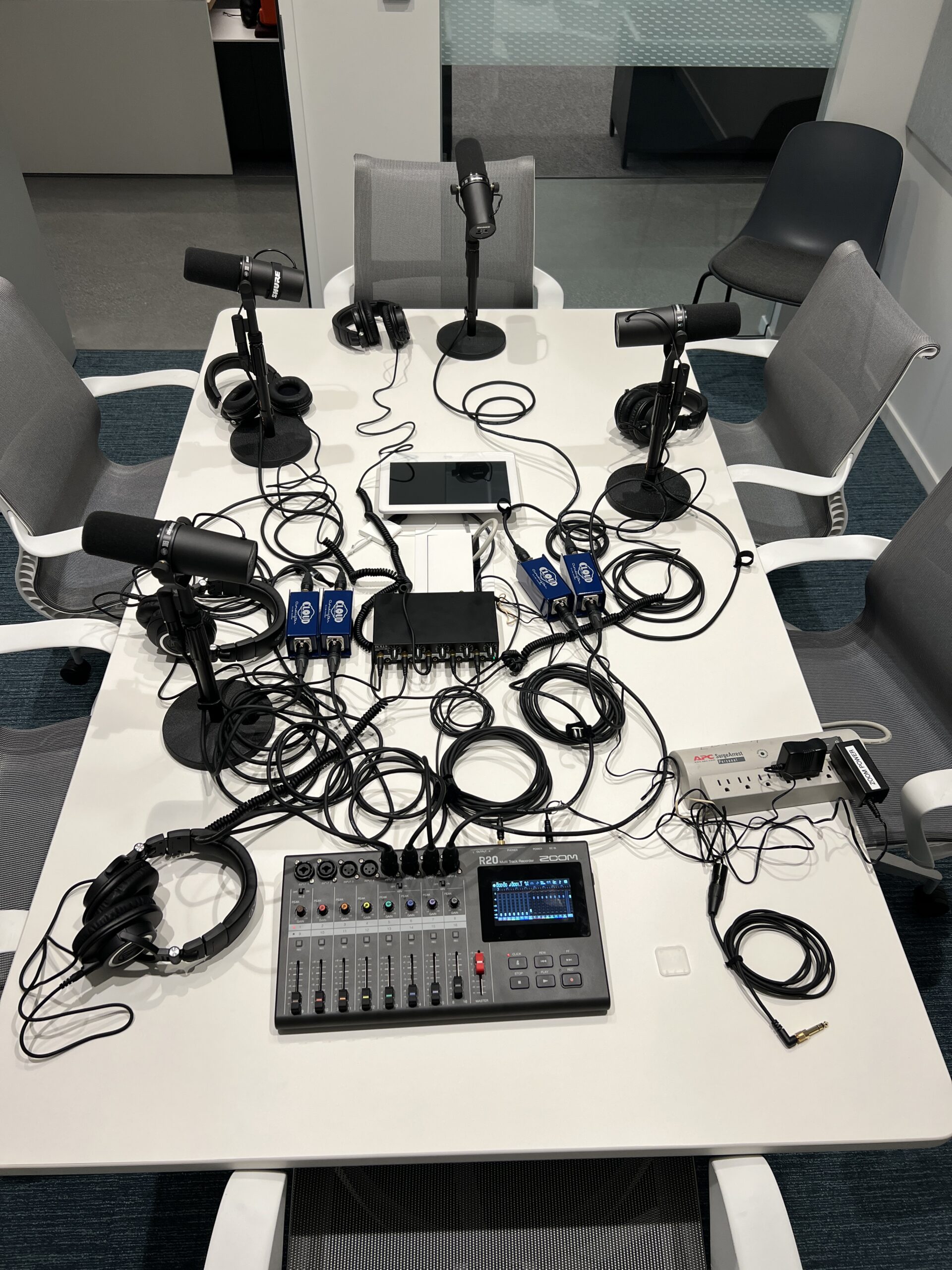
Meet your hosts:
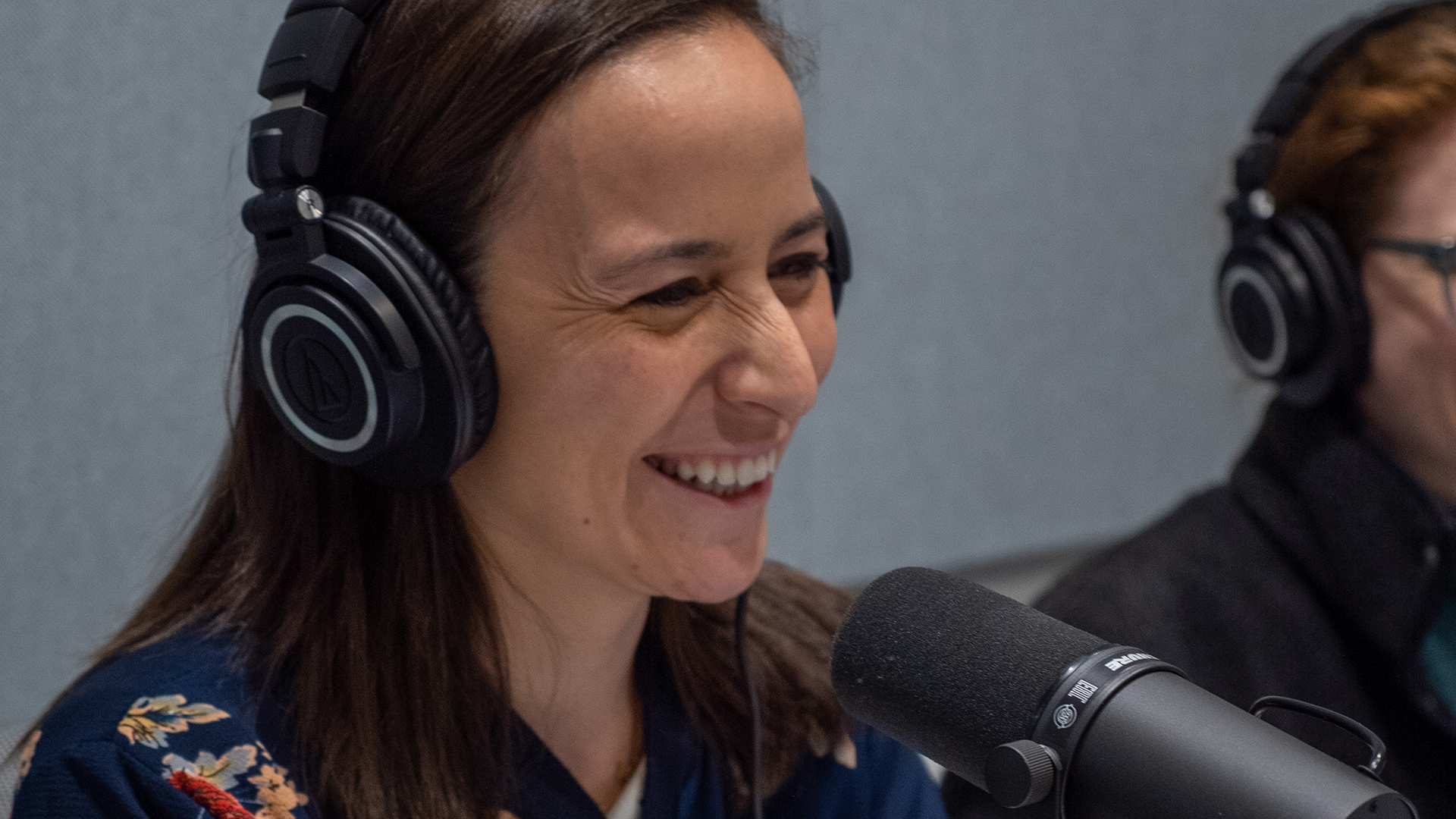
Natasha Steele
Natasha is a young adult cancer survivor, an internist and researcher, and an incoming faculty member at Stanford Medicine.
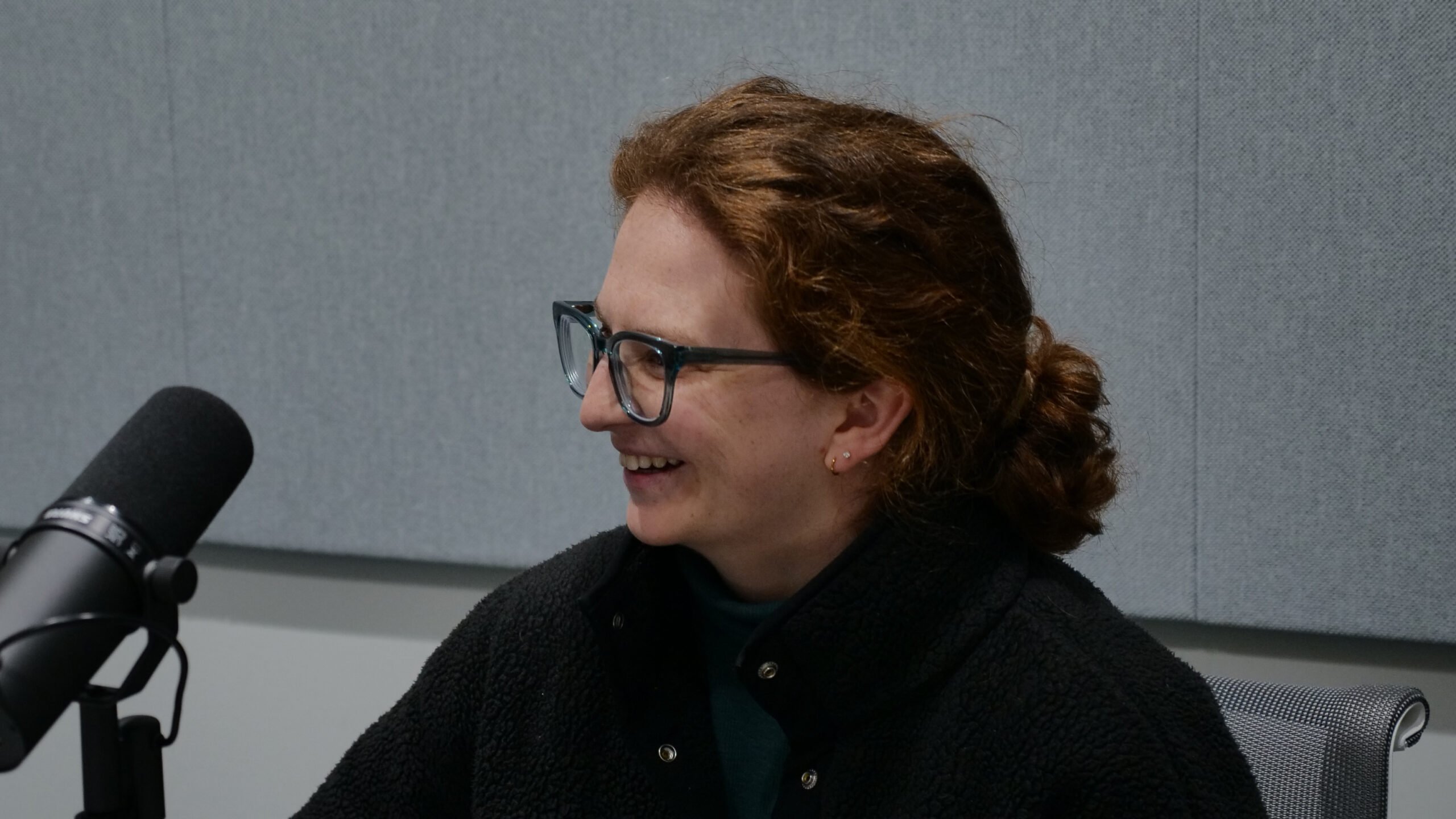
Elle Billman
Elle is a childhood cancer survivor and 2028 MD candidate at the Ichan Medical School, at Mt. Sinai, in New York.


